Pep talk - April 2025
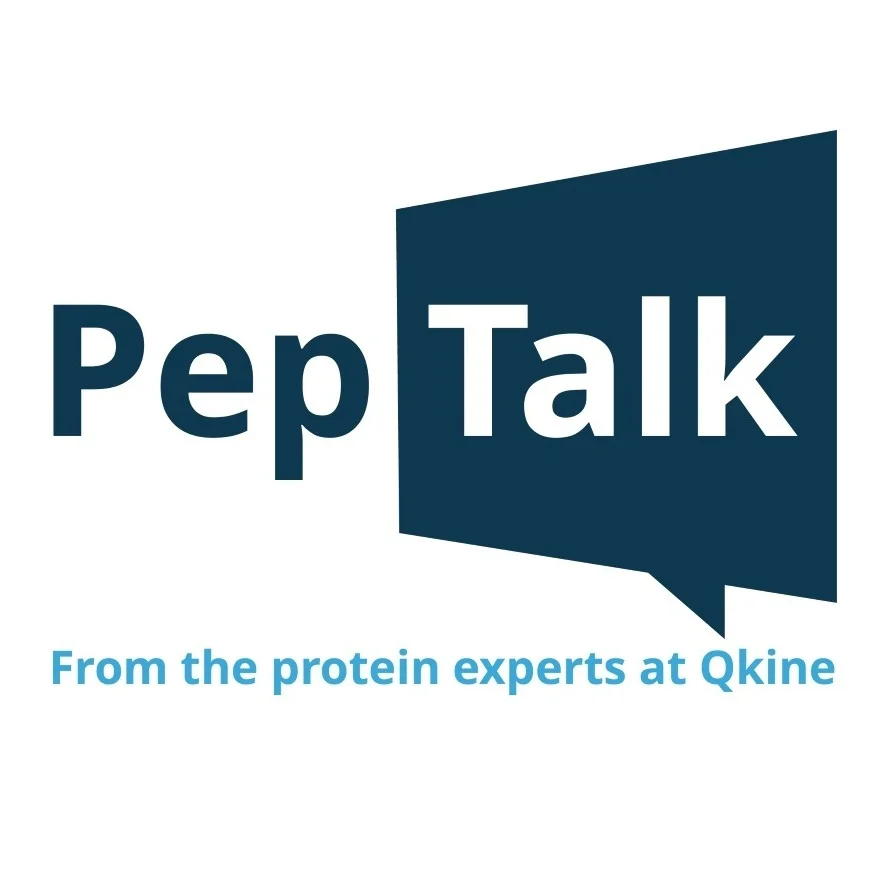
New Qkine website launched
We’re thrilled to share some big news—our new website is officially live!
Over the past few months, we’ve been working behind the scenes to create a better, faster, and more user-friendly online experience for you. Whether you're browsing on desktop or mobile, everything is now easier to find and nicer to look at.
Here’s what’s new:
- A fresh, modern design
- Improved navigation and faster load times
- Mobile-friendly layout
- Updated content and new features
We built this new site with you in mind—so we’d love for you to check it out and let us know what you think!
Visit the New Website
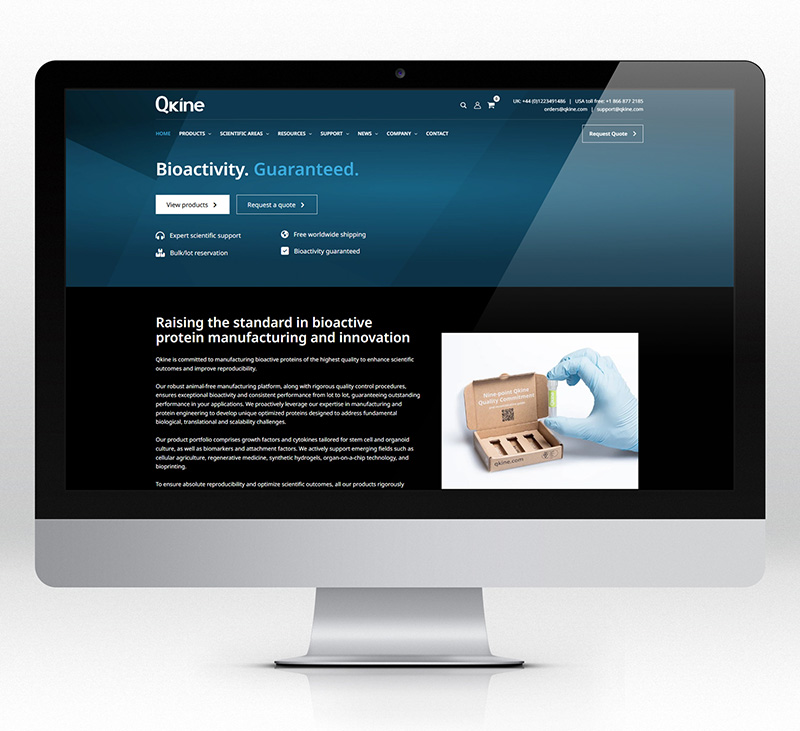
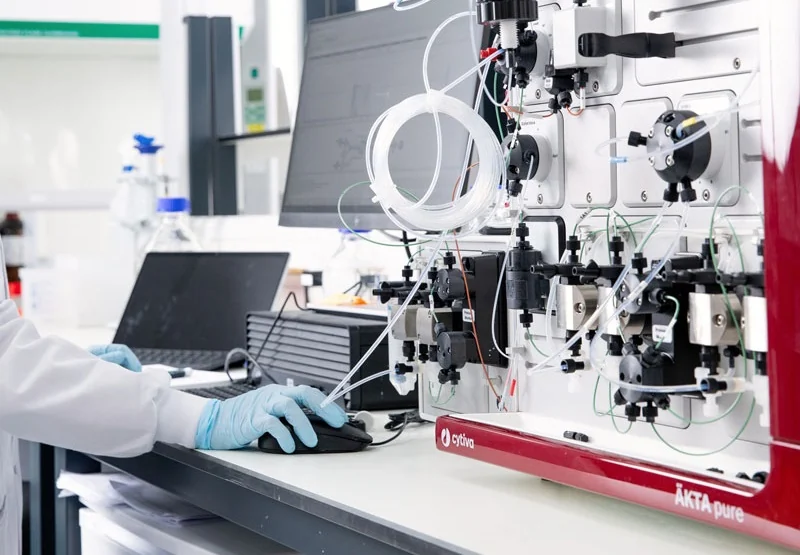
BLOG
Unexpected consequences: growth factor cross-contamination in mammalian and E. coli expressed growth factors
At Qkine, we have repeatedly highlighted the need for stricter process and quality control in the manufacture of recombinant growth factors to prevent cross-contamination with related growth factors. Contamination with other bioactive proteins leads to a lack of inter- and intra-lab reproducibility or, perhaps most concerningly, incorrect scientific conclusions.
Qkine and StemCultures launch co-developed products for increased cell culture stability and reproducibility
StemBeads technology stabilizes growth factors and controls their release into the media, reducing passage frequency and media variability. Qkine animal origin-free recombinant growth factors and cytokines have guaranteed bioactivity lot-to-lot, further increasing the the reproducibility of cell cultures and stem cell maintenance and differentiation.
Products available through Qkine or StemCultures
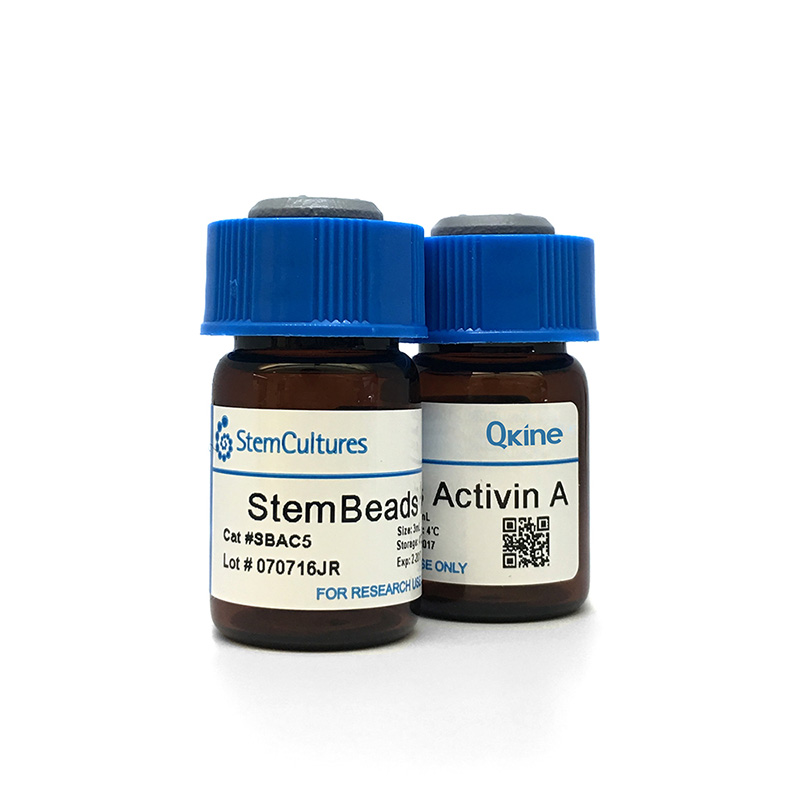
New Products
Human FGF-19
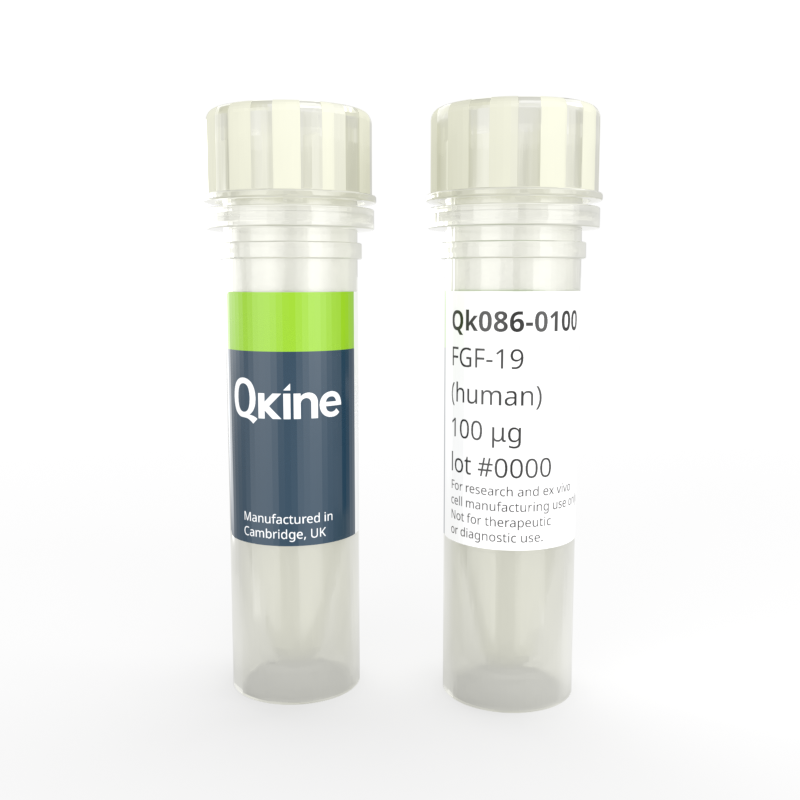
Fibroblast growth factor 19 (FGF-19), a member of the FGF family, and plays a role in regulating metabolic processes. FGF-19 is expressed by embryonic stem cells and can be used in stem cell and organoid cultures to promote liver and osteogenic differentiation.
FGF-19 is a high purity protein with a molecular weight of 21.8 kDa. This protein is animal origin-free, carrier-free and tag-free to ensure its purity with exceptional lot-to-lot consistency. Qkine FGF-19 is suitable for the culture of reproducible and high-quality stem cells, primary cells and organoids.
Chicken/duck FGF-2
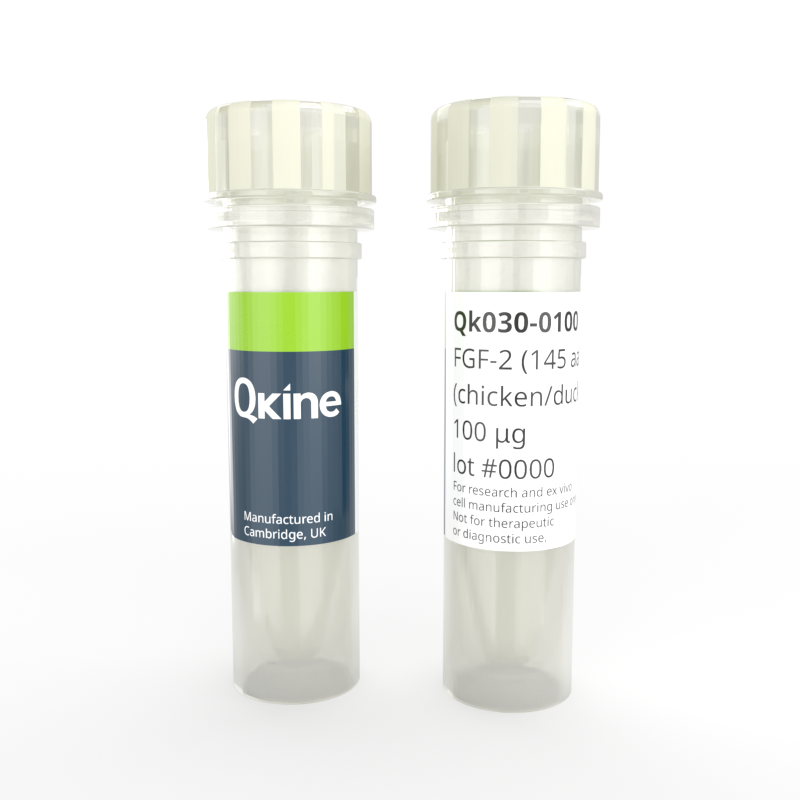
Recombinant chicken/duck FGF-2 protein 145 aa (bFGF/basic FGF) for the development of species-specific avian cellular agriculture protocols and veterinary research applications. Used in comparative cell culture media optimization studies for cellular agriculture process development. FGF-2 is used extensively in the maintenance and proliferation of induced pluripotent (iPSC) and embryonic stem cells (ESC) and for enhancement of proliferation in primary cell culture.
Qkine chicken/duck FGF-2 protein is a high purity 16 kDa protein, animal origin-free (AOF), tag free and carrier-protein free (CF).
Food grade chicken/duck FGF-2

Recombinant chicken/duck FGF-2 protein 145 aa (bFGF/basic FGF) for the development of species-specific avian cellular agriculture protocols and veterinary research applications. Used in comparative cell culture media optimization studies for cellular agriculture process development. FGF-2 is used extensively in the maintenance and proliferation of induced pluripotent (iPSC) and embryonic stem cells (ESC) and for enhancement of proliferation in primary cell culture.
Qkine food grade chicken/duck FGF-2 protein is a high purity 16 kDa protein, animal origin-free (AOF), tag free and carrier-protein free (CF).
Growth factors and cytokines for neural stem cell research
Neural stem cell research
High-quality growth factors are essential for developing and maintaining robust, reproducible, and physiologically relevant neural cultures. Growth factors developed in an animal-free expression system have a higher lot-to-lot consistency and fewer contamination risks from viruses, prions, and other animal-derived ingredients. All growth factors and cytokines from Qkine pass stringent biochemical and bioactivity quality control testing, ensuring you complete confidence in the reagents for your neural stem cell cultures.
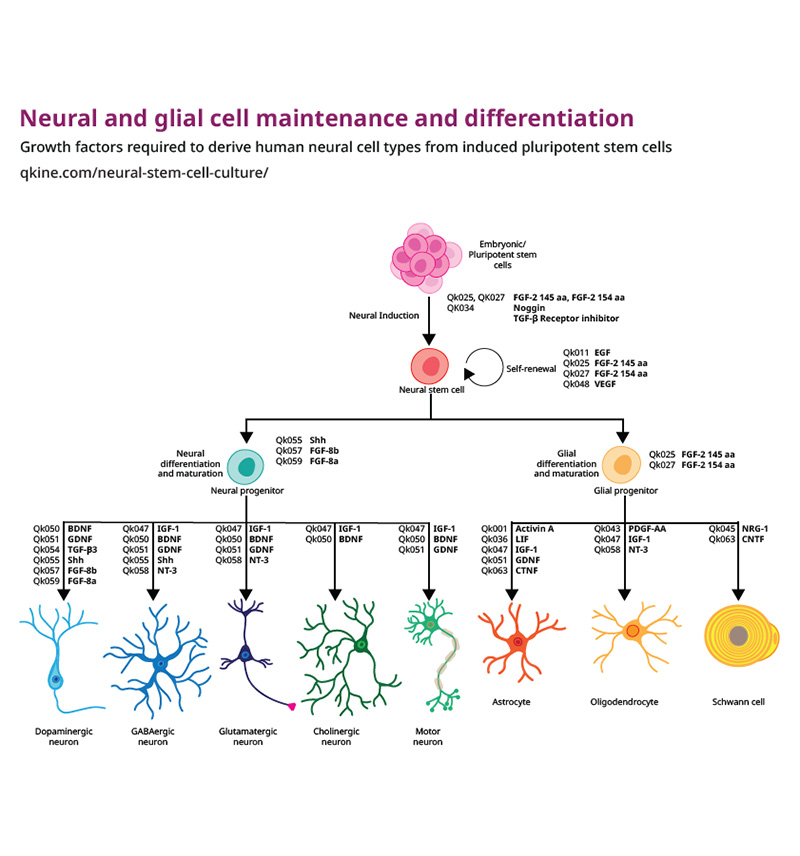
Dopaminergic neuron differentiation kit
The dopaminergic neuron differentiation kit is a comprehensive tool designed to assess and confirm the differentiation potential of both newly derived and established iPSC lines. This kit enables researchers to evaluate the ability of iPSCs to differentiate into dopaminergic neurons, a specialized neuronal subtype essential for motor control, reward processing, and cognitive functions. Dopaminergic neurons play a crucial role in neurological health, and their degeneration is a hallmark of Parkinson’s disease.

All our growth factors are manufactured within a stringent quality framework, ensuring high-quality proteins that maintain robust, reproducible, and physiologically relevant stem cell and organoid cultures that adhere to our Nine-point Quality Commitment.
Upcoming Events
- Milner Therapeutics Institute Matchmaking event | 29 April 2025 | St John's College, Cambridge, UK
- LSCN 8th Annual Symposium | 6 May 2025 | London, UK
- BSI Yorkshire Immunology Group Meeting | 13 May 2025 | York, UK
- Babraham Research Campus Supplier Day | 5 June 2025 | Babraham Research Campus, Cambridge, UK
- London gastrointestinal Organoid Network (LION) launch workshop | 9 June 2025 | The Crick Institute, London, UK
- Microphysiological Systems (MPS) World Summit | 9-13 June 2025 | Brussels, Belgium
We'd always love to meet you at any of events, contact support@qkine.com to make an appointment.
What’s next?
Qkine are committed to producing the most high quality and bioactive growth factors and cytokines, coming soon to our extensive portfolio:
- Recombinant human betacellulin (Qk123) - Expected April 2025
- Recombinant human IL-18 protein (Qk100) - Expected May 2025
- Recombinant human IL-8 protein (Qk119) - Expected May 2025
- Recombinant human EPO protein (Qk099) - Expected May 2025
- Recombinant human TPO protein (Qk098) - Expected July 2025